Meet the golf club manager: Darren Attwood
The club secretary / general manager of Royal Jersey Golf Club talks about being in the unprecedented position of spending the last two decades managing a prestigious golf club where he has also been a member since the mid-1970s, and the challenge of having a high number of rounds per year on just 70 acres of land in a relatively small island.
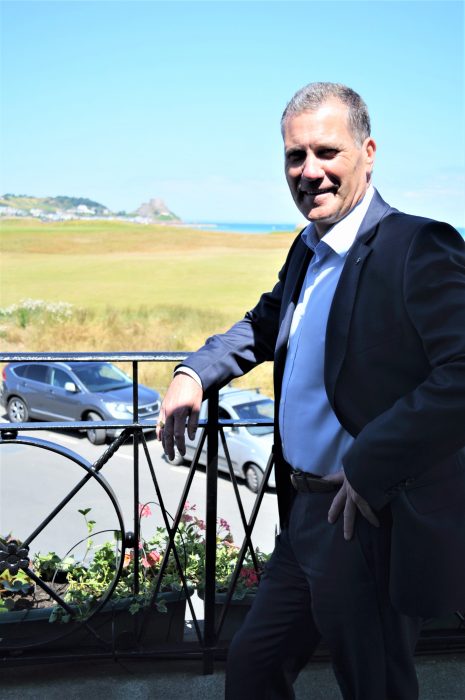
Darren Attwood
Can you tell us about Royal Jersey Golf Club – including its illustrious history and what the golf course is like today?
The club was founded in 1878 and received its Royal Warrant from Queen Victoria the following year, making Royal Jersey the eighth oldest royal club in the world. The club has a rich history and is most famous for where Harry Vardon learned to play the game. Whilst Harry was never a member of the club, he caddied for the founding members, who also taught him the rudiments of the game.
Harry soon became world famous, not just for using the overlap grip (the Vardon grip) but also for an unequalled six Open Championship victories and one US Open Championship. In fact, an Open and US Open win has only been achieved three times by Englishmen – all of whom are associated with the island – Harry Vardon, Ted Ray and Tony Jacklin. Ted Ray was also from Jersey, born and bred in the village of Gorey, literally a mile from the course. Ted not only achieved the above, but he was also the first Ryder Cup captain. And Tony Jacklin lived in Jersey for several years.
In addition to Harry Vardon and Ted Ray, there were a number of golfers from Jersey at the turn of the century that were famous at the time, Harry’s brother Tom, the Gaudin brothers, Thomas Renouf and Aubrey Boomer. In fact, the first ever international golf match was played in 1909 between England and Scotland. In the English side were four Jerseymen (out of a team of 11)!
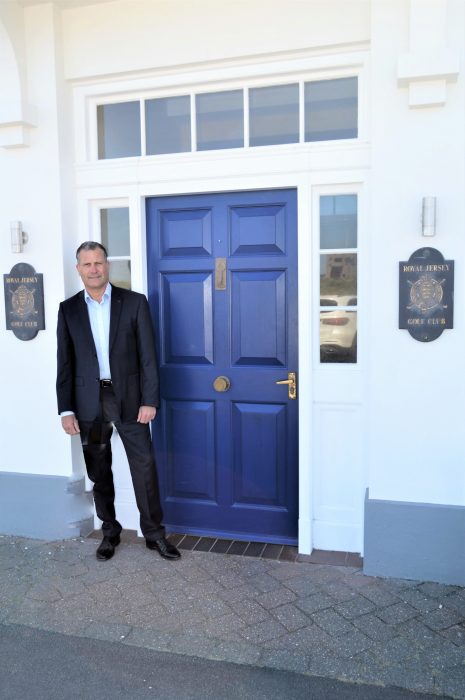
More recently the late Tommy Horton was the club professional for 25 years, was twice a Ryder Cup player and won five Senior Tour Order of Merits and a host of worldwide professional tournaments, while Carol Le Feuvre played the Curtis Cup in 1974.
Jersey really has a rich history of golfers, which is amazing considering the island is only nine by five miles and has a limited population.
The course still occupies the same land it did when first established by the (military) members in 1878. Each hole has been changed over the years but owing to the land restrictions it has not been lengthened to any great extent. Measuring only 6,200 yards long, the defence is narrow fairways, strategic bunkering and, of course, the wind. The first four holes run along the beach and the first hole’s fairway runs between the sea wall and a mediaeval fort! Jack Nicklaus, when he played here in 1984, said it was one of the toughest opening tee shots he had ever played!
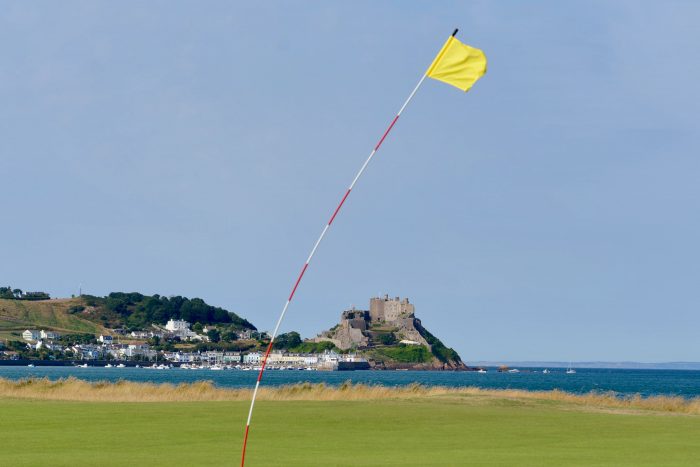
The club embarked on a major investment programme in 1994. Can you tell us about that and the effect it has had on the venue today?
In 1994 the whole clubhouse was re-built, apart from the walls! A portacabin was erected in the car park and the club was run from that – offices, bar, locker rooms, the pro shop … the whole shooting match! But the members embraced it and moved back into the renovated clubhouse the following year.
Coincidentally, we are hoping to completely refurbish the main bar and restaurant early next year as it is looking a little tired after 25 years, as the club invested heavily in the course after the 1994 renovation. The clubhouse is our main asset as the course is ‘Crown Land’ and the club leases it from Her Majesty the Queen.
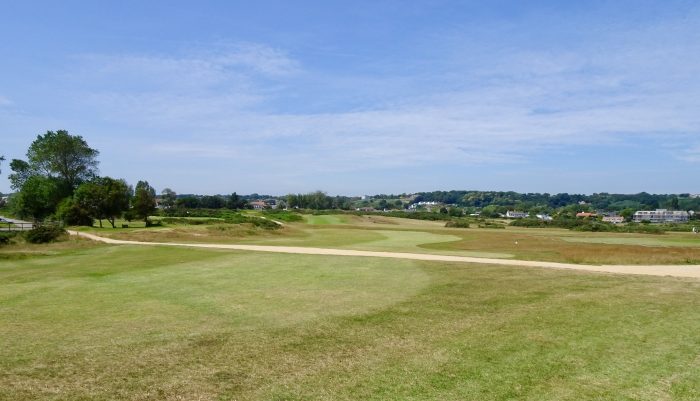
Despite being a relatively young golf club manager, you’ve been a member of the club for a staggering 45 years! How has it changed in that time? Are you aware of any UK golf club manager who has been a member of their club for as long as you have?
I joined the Royal at the age of seven – there was no waiting list at the time – having been introduced to the game by my father who was, and still is, a member. The biggest change I have seen in those years is in the quality of the course in terms of playing surfaces. Back in the 70s there was very little irrigation and I remember playing in 1976 during the drought and only being able to see where your ball was by the puff of dust as it bounced down the fairway!
The club has just become busier with more and more members playing each week – the car park is usually full by 9.00am on any given day – which wasn’t the norm until the last ten years or so.
When I joined as secretary / manager in 1999, it was quite rare to be the manager (secretary) of your own club, but this is becoming more common these days. Forty-five years a member and nearly half as the manager is a long time. I haven’t heard of any other managers in the same situation as me.
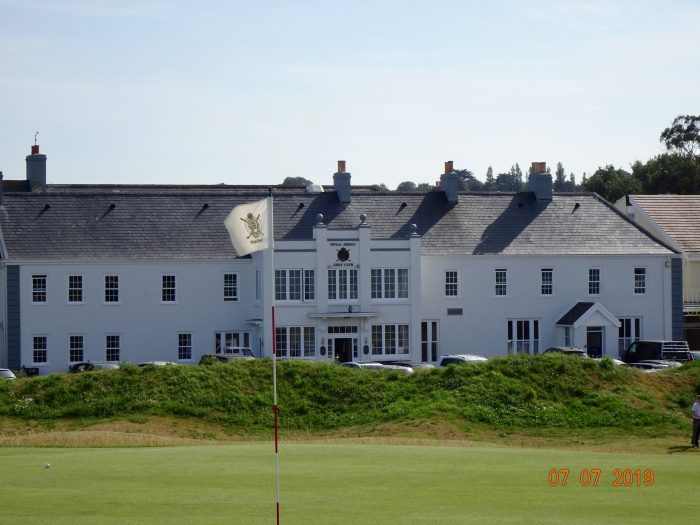
How many times have you played the course since 1974 and what was your best round?
Goodness! I couldn’t tell you how many rounds I have played. The increase in workload means that I don’t often leave until late meaning I have less opportunities to play these days.
Best rounds? I shot 67 gross (three under) in a local alliance about 15 years ago but sadly it did not qualify for handicap. The best round in a qualifier was three years ago with a 69.
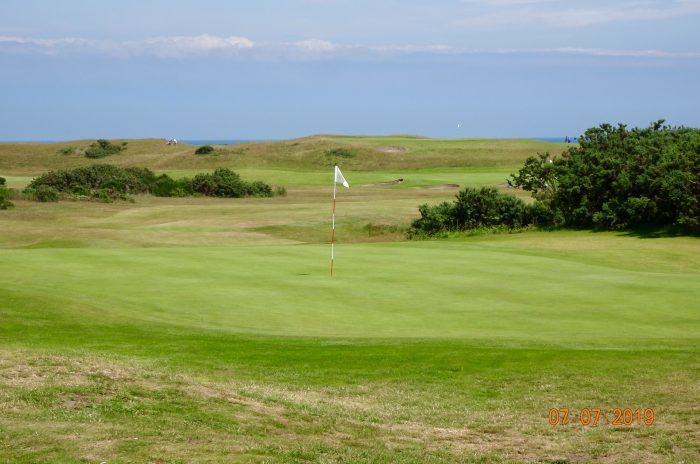
You’ve also been manager of the club for 20 years this October – making you one of the longest running managers of the same club in Europe. How do you think the role of the golf club manager has changed over that time?
The role has changed in many ways. When I started, the role concentrated purely on the secretarial aspect whereas now it has expanded to include commercial, policy and strategic management. Obviously, my length of service and experience means that the management committee have confidence in any suggestions / recommendations that I am able to put forward.
The club manager is still clearly responsible for the day-to-day activities of the club and these have also seen some significant changes. When I began, 70 per cent of my day-to-day work was golf related and the remainder was admin – now the figures have reversed. Health and safety legislation, HR, financial management and the advent of email / internet means club managers are spending more and more time concentrating on these administrative duties – the majority of which are unseen by the members.
The Golf Club Managers’ Association (GCMA) have worked hard to try and progress the role and promote it as a full-time career option as opposed to the historical ‘second career’ for retired bank managers and military officers topping up their pensions. As I have mentioned, much of our day-to-day work is unseen by the members and I think many would be surprised at the varied responsibilities of today’s modern club manager.
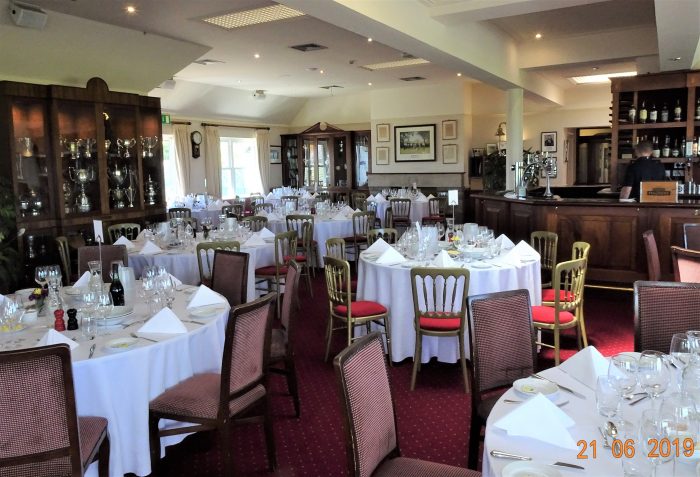
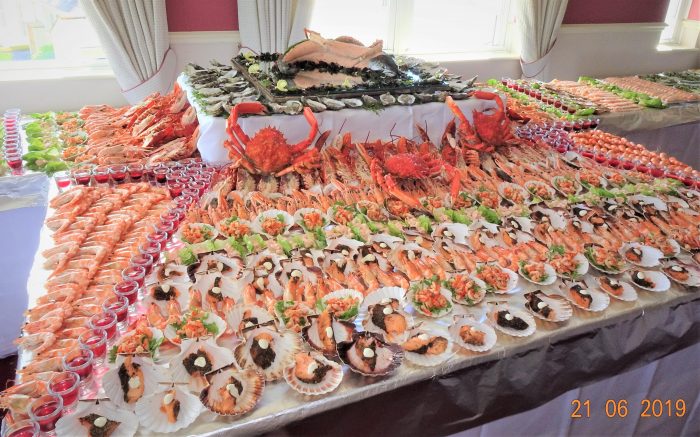
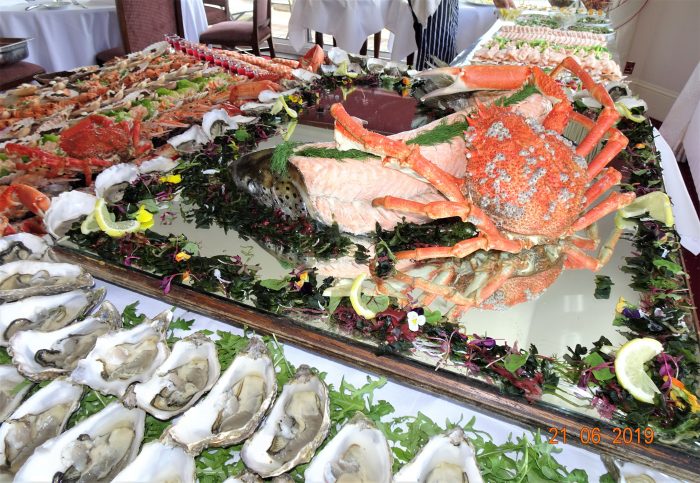
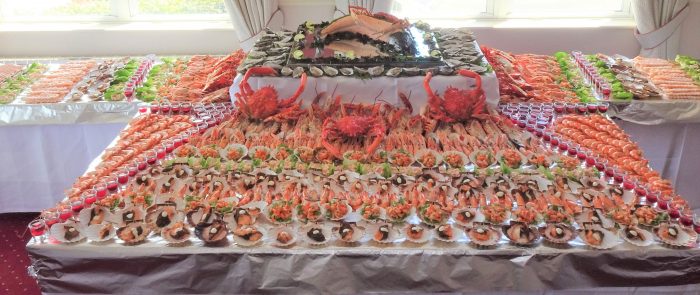
What do you think are your biggest challenges at Royal Jersey today? Are there also specific issues involved in not being on the mainland?
The challenge for us is the amount of play on the course. The club is extremely busy, and I estimate we have 40,000 to 45,000 rounds a year. Whilst not that great a number for some of the larger resort courses in the UK or Europe, it is for a comparable private members’ club where the course only occupies 70 acres! The more play on the course, the more wear and tear it causes so the challenge is to have the course in the best possible condition utilising environmentally friendly practices now that the number of chemical aids have been reduced.
The club is in the fortunate position of having a waiting list, so I do not share the challenge of many of my colleagues on the mainland in attracting (and retaining) members. However, the challenge is to ensure that the members’ experience is consistent and offers value for their annual subscription. Managing members’ expectations is one of the main challenges for every club manager.
Not living on the mainland does have specific logistical challenges – deliveries of turf, top-dressing, machinery, foodstuffs and so on, when bad weather in the channel causes the cancellation or delay of cargo ferries.

A personal disadvantage for me is not having the ability to frequently meet with my fellow club managers in the UK. I endeavour to attend at least one regional GCMA meeting per annum as it provides great networking opportunities. Having to jump on a plane to go anywhere is a lot more challenging than driving 20 miles to meet up with three colleagues to have a game of golf and a chat about the common issues we are all facing.
Another interesting aspect of living on an island is that people can become quite ‘insular’ and can easily be drawn into their own bubble. Being distanced from the mainland, makes it much more difficult to make comparisons. For example, I may receive negative comments in the winter that the greens are not playing their best, whereas many mainland clubs will be on temporaries or are under snow. It is easy to forget that there is a bigger world out there when living on a small island in the middle of the channel.
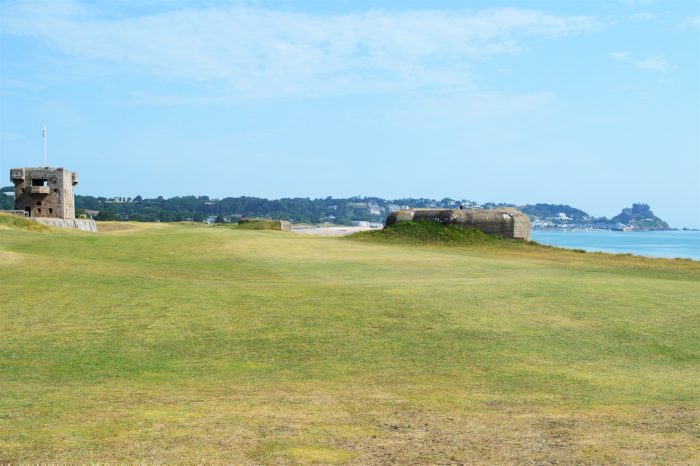
Being based off the coast of France rather than the UK, is there a difference in the weather compared to the mainland UK that has an effect on how the course needs to be maintained?
The Channel Islands’ weather is very similar to the UK’s, despite a perception that Jersey is a tropical island! Jersey, on average, has more sunshine hours than anywhere else in the British Isles but due to coastal breezes we will experience cooler summer days than parts of the mainland. However, on the plus side, our winters are milder with very little snow or frost. Hence not having the need for temporary greens.
Last winter the course was not closed for one single day. Not only does the course not receive a natural break or rest from closure, just as many members continued playing, adding to the wear at a time when it takes longer to recover.
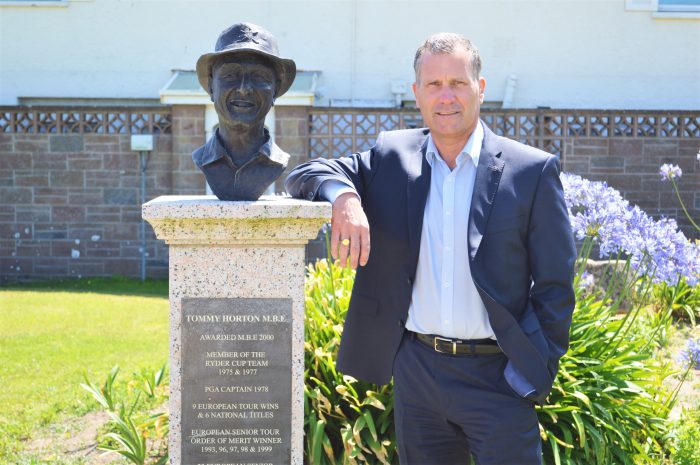
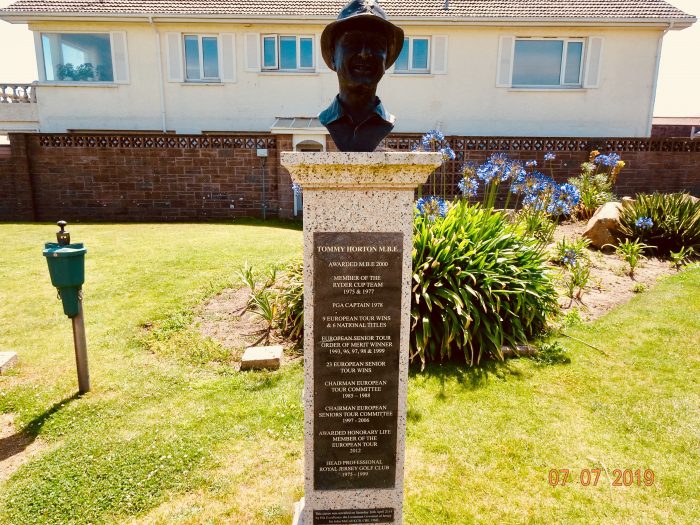
The club has offered flexible memberships for years. Can you tell us more about this?
The club has always offered a non-playing membership for those full members who have found that they do not have the time to play owing to young families, building a career and so on. The non-playing membership is essentially a social membership and allows them to maintain a connection with the club without playing rights, but more importantly to ‘re-join’ when time allows. Many of the non-players are regular visitors to the clubhouse for social evenings or meals at the weekends with their families, which is great to see.
We also have a category of membership whereby a full playing member, who leaves the island for a full calendar year or more, can pay a reduced subscription and can transfer back to full playing when he or she returns to the island. I took advantage of this back in the late 1990s when I lived on the mainland for a few years.
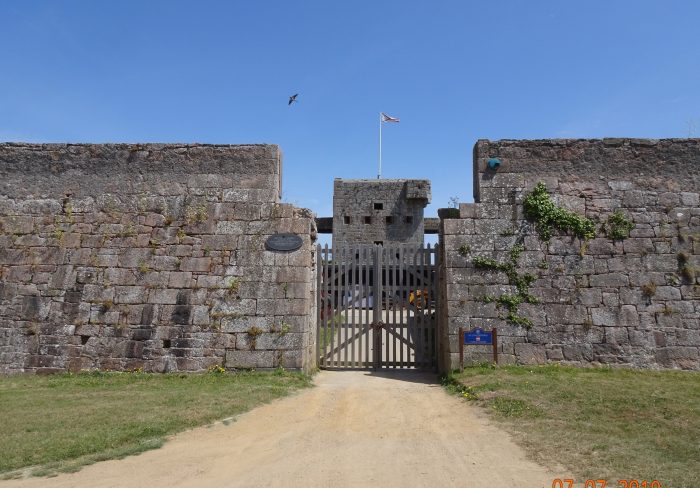
What IT system do you use for your clubhouse software? How beneficial has it been?
The club uses Club Systems products, which was in place prior to my arrival as the manager. We have their handicapping and admin software; player score input terminals and till systems – all of which is constantly under review and upgraded by CSI with the club manager at the forefront of their considerations. I cannot praise their products enough.
More importantly, the members seem to love the HowDidIDo platform and I have just recently rolled out the ClubV1 members’ app, which has become very popular, very quickly!
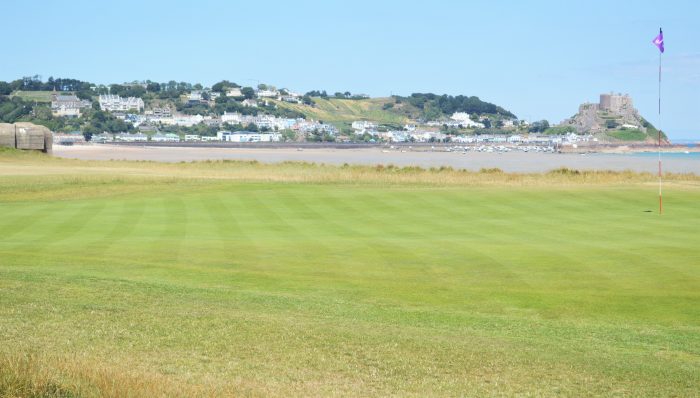
The entire population of Jersey is smaller than that of Kettering – yet it has six well-regarded golf courses. What does the club do about marketing itself to golfers? Being located between England and France, do you market separately for British and French golfers, as well as locals? Do you have many French visitors / members?
The club is very fortunate that it only has to carry out minimal marketing to attract visitors. One of only three 18-hole courses on the island helps, but so does the Harry Vardon and Tommy Horton connections. People enjoy being able to say they played the course where Harry Vardon learned to play! Especially, the Americans. Vardon was huge in the States when he was alive, and his legacy continues there – probably more so than it does in the UK.
Obviously, being so close to France means that we do welcome many French visitors, but also from many other European countries, especially Scandinavia and Germany.
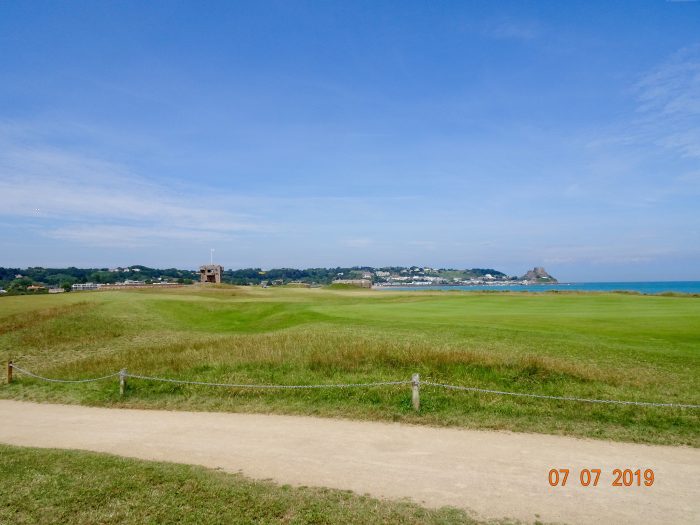
Jersey is not part of the UK – or the EU – but is a ‘Crown dependency’ and accepts UK currency despite also having its own banknotes and coins. What effect has this had on the local economy and what knock-on effect has this had on Royal Jersey?
Being a Crown Dependency and accepting UK currency does not cause any issues. Being a Crown Dependency during Brexit does as we are not certain how we will be affected. Mind you, nor does the UK! The only issue over having our own money is that the visitors cannot spend it back home on the mainland as shops and so on will not accept it! (Banks will though.)
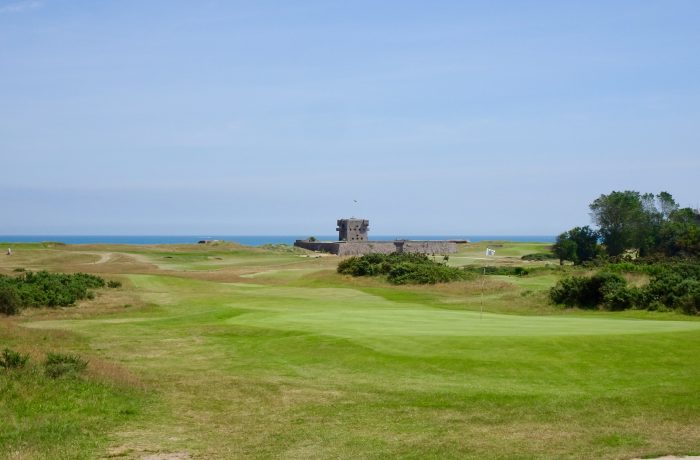
Royal Jersey received a bit of media interest a few years ago when it appointed the island’s first ever female PGA professional to its staff. Has this helped in the attraction of more women to the golf club?
Alex (Mollin) was warmly received by the membership as a whole and is now an integral part of our professional team; we have five PGA professionals. Whether her appointment attracted more ladies to golf, I am not sure as women’s golf is popular in the island, but I certainly believe it has given confidence to some lady golfers as they now have the option of booking a lesson with a lady coach.
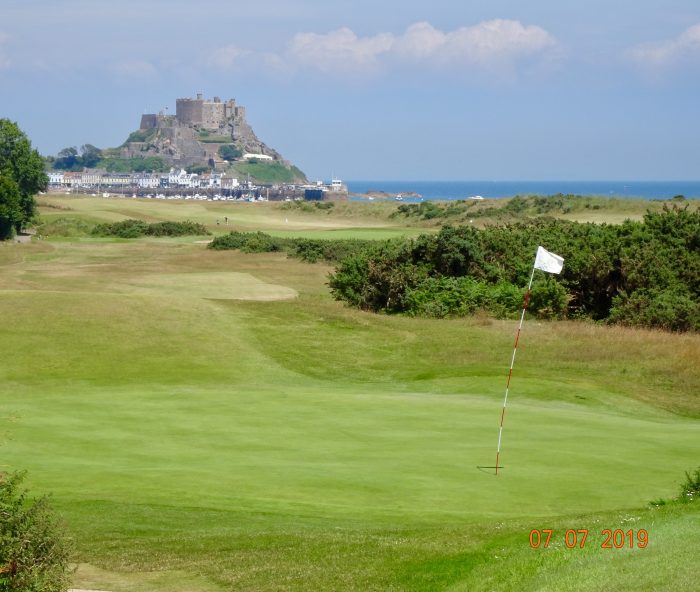
What is the club doing to enhance profitability of its food and beverage operation?
We are very fortunate to have a first-rate team in the restaurant and bar. Tomasz is an excellent head chef and Bart (house manager) leads a very efficient front of house team. The quality of the catering and value for money has resulted in more and more members holding private functions (birthdays, anniversaries, Christenings and so on) in the clubhouse and this has given our food and beverage returns a healthy boost in the last few years.
Our members are very discerning as the quality of restaurants in the island are very good and we must have the quality to compete.

The club also runs a ‘Savings Club’ whereby members can save for their subscriptions by paying in a set amount each week for a period of 48 weeks and the total is paid out (with a small amount of interest) around the same time the annual subscriptions are due. Not only does this assist members to pay their subscriptions, but ‘pay in’ is on Friday evenings between 5.00pm and 6.30pm, which has attracted members to the clubhouse. They stay, have a drink, chat to friends and then end up staying on for dinner. On an average Friday evening we will serve over 60 covers, a real bonus to any F&B operation – and the atmosphere is fabulous!
The committee relaxed the dress code at the beginning of 2018 and we have seen an upturn in general usage as well as private functions, since then.

Is there competition between yourself and the other golf club managers in Jersey? And is there competition between the Jersey golf club managers and the ones in Guernsey?
Not at all! There is only one other (paid) club manager in Jersey [La Moye Golf Club] and he and I speak regularly on all sorts of club issues as there is only the two of us in the island. Whilst competition is hugely fierce between the two clubs, there is none between Richard [Cutler] and me! Likewise, with the managers in Guernsey. Rivalry between the islands and island clubs is ferocious but, as managers, we all share the same challenges and, therefore, empathise with each other.















Let me tell You a sad story ! There are no comments yet, but You can be first one to comment this article.
Write a comment